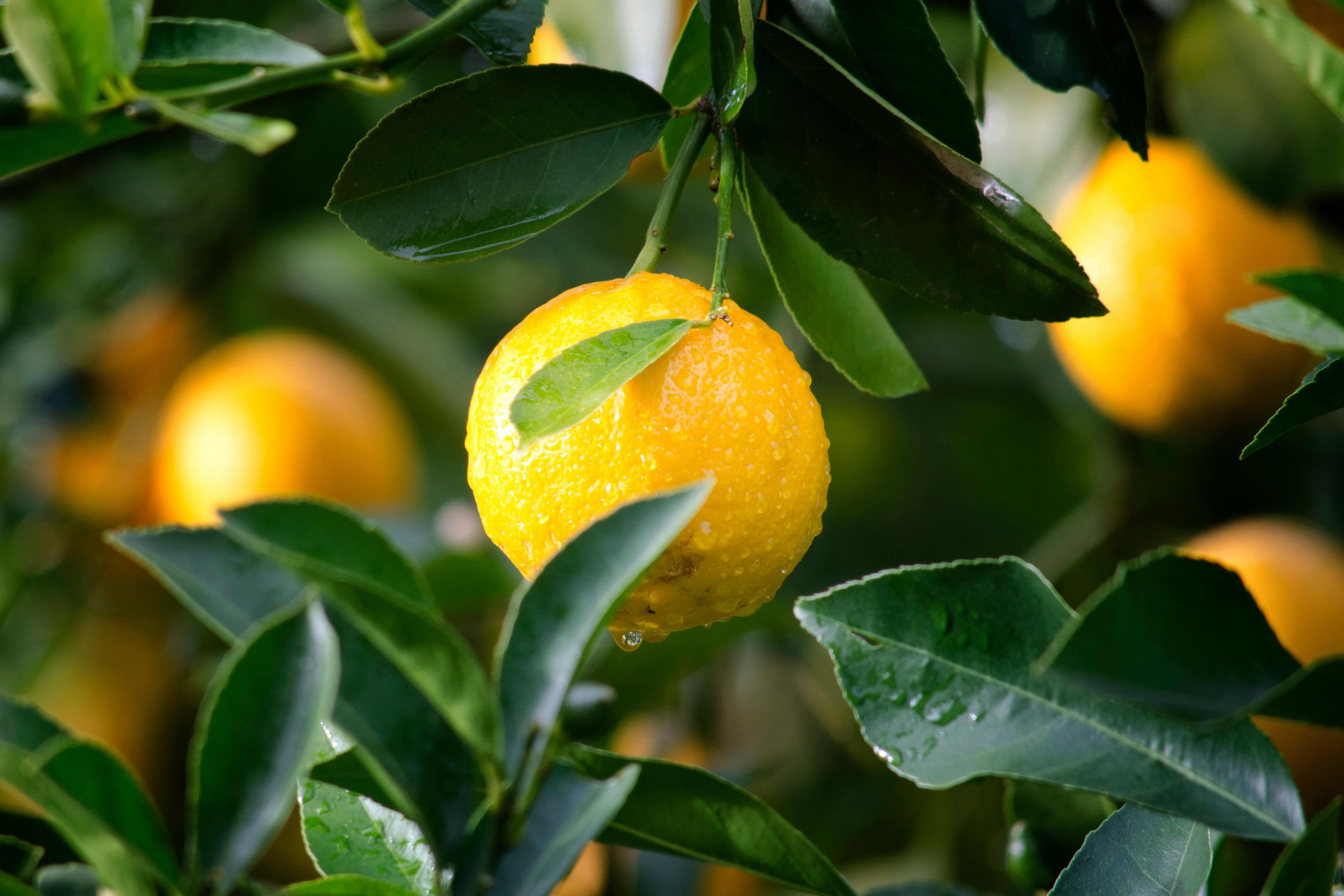Fruit juice is often considered a healthy beverage choice due to its naturally occurring vitamins and minerals. One of the most important of these components is electrolytes, which are essential for proper hydration and bodily functions. In this article, we will discuss the electrolyte content of fruit juice and how it can benefit your health.Electrolytes are substances that contain free ions and can conduct electricity when dissolved in water. They are essential for the body to function properly and are found in blood, urine, and bodily fluids. Electrolytes play a key role in maintaining the body’s fluid balance, muscle contraction, nerve conduction, and many other important functions. Common electrolytes include sodium, chloride, potassium, calcium, and magnesium.
What Is Fruit Juice?
Fruit juice is a liquid naturally contained in fruits and vegetables. It is typically a mixture of water, sugar, and other natural ingredients, as well as vitamins, minerals, and antioxidants. The most common fruit juices are orange juice, apple juice, cranberry juice, and grapefruit juice. Fruit juices can also be made from other fruits like pineapple, mangoes, papaya, melon, strawberries, blueberries and more. Some fruit juices are even made from vegetables like tomato juice and carrot juice.
Fruit juices are a great way to get your daily dose of vitamins and minerals. They are also low in calories and fat compared to other beverages like soda or energy drinks. Because of these benefits, many people choose to drink fruit juices instead of sugary drinks or soda for health reasons.
Fruit juices can be enjoyed in many ways such as on their own or combined with other ingredients to make smoothies or cocktails. They can also be used in baking recipes or added to sauces for extra flavor. Fruit juices are also used in the production of jams and jellies for preserving fruits and vegetables that may not last very long otherwise.
Overall, fruit juices offer many health benefits while still being delicious and convenient to enjoy!
Are Electrolytes Present in Fruit Juice?
Yes, electrolytes are present in fruit juice. Fruits contain minerals, such as sodium, potassium, chloride and magnesium, which are released when the fruit is juiced. These minerals are referred to as electrolytes because they are able to conduct electricity when dissolved in water. Electrolytes are important for the body because they help to maintain fluid balance and regulate nerve and muscle function.
When fruits are juiced, the process removes most of the fiber from the fruit but leaves behind these electrolytes. This means that fruit juice has a higher concentration of electrolytes than whole fruits. Therefore, drinking fruit juice can be a good way to replenish electrolytes after exercise or during hot weather when you lose more electrolytes through sweat.
However, it is important to note that some types of fruit juices may contain added sugar or other ingredients that can have an adverse effect on your health if consumed in large quantities. So while drinking fruit juice can be beneficial for replacing lost electrolytes, it is best to consume it in moderation and choose unsweetened varieties whenever possible.
In conclusion, yes, electrolytes are present in fruit juice and can be beneficial for maintaining fluid balance and regulating nerve and muscle function. However, it is important to choose unsweetened varieties and consume them in moderation for best results.
Benefits of Electrolytes in Fruit Juice
Fruit juice is a great source of electrolytes. Electrolytes are substances that help regulate many important bodily functions, such as hydration and muscle contractions. They can also help to balance the body’s pH levels and promote the absorption of nutrients. In addition to providing essential electrolytes, fruit juice is also packed with vitamins, minerals and other essential nutrients that can benefit your health. Here are some of the benefits of electrolytes in fruit juice:
1. Improved Hydration: Electrolytes help to regulate the body’s water levels, which helps keep you hydrated. When you drink fruit juice, your body absorbs the electrolyte-rich liquid quickly and efficiently, giving you an instant boost of hydration.
2. Improved Performance: Electrolytes are important for muscle contractions and nerve functions, so if you’re an athlete or someone who exercises regularly, drinking fruit juice can be beneficial for improving performance. The electrolyte-rich liquid helps to keep your muscles functioning properly and prevents muscle fatigue.
3. Improved Digestion: Electrolytes are essential for digestion as they help to break down food particles into smaller molecules that can be absorbed by the body more easily. Drinking fruit juice can help to improve digestion by providing essential electrolytes that aid in the digestive process.
4. Balanced pH Levels: Electrolytes are important for maintaining a healthy pH balance in the body. When your body is too acidic or too alkaline, it can lead to various health problems such as fatigue and poor digestive health. Drinking fruit juice helps to restore balance in your body by providing essential electrolytes that help regulate pH levels.
5. Improved Nutrient Absorption: Electrolytes play an important role in nutrient absorption by helping to transport nutrients throughout the body more efficiently. Drinking fruit juice helps to provide essential electrolytes that aid in the absorption of vitamins, minerals and other essential nutrients into the cells where they can be used for energy production and other bodily functions.
Overall, drinking fruit juice is a great way to get a boost of essential electrolytes while also getting other beneficial vitamins and minerals that will help keep your body functioning at its best!
Ensuring That Your Fruit Juice Has Electrolytes
Fruit juice is a great way to get your daily intake of vitamins and minerals, but it’s important to make sure that your juice contains electrolytes as well. Electrolytes are minerals in the body that help maintain the balance of body fluids. They can be found in a variety of foods and drinks, including fruit juices. Here are some tips for ensuring that your fruit juice has electrolytes:
1. Choose juices that contain natural sources of electrolytes, such as coconut water, citrus fruits or bananas. These fruits are high in potassium and magnesium, two important electrolytes.
2. Look for juices with added electrolytes such as sodium or potassium chloride. Some manufacturers add these minerals to their juices to boost their nutrient content and make them more appealing to consumers.
3. Choose 100% fruit juice instead of diluted or “juice drinks” which contain added sugar and other ingredients that can reduce the amount of electrolytes present in the drink.
4. Consider adding powdered electrolyte mixes to your juice for an extra boost of nutrients. There are many brands available on the market that will add essential minerals such as calcium, magnesium, sodium, and potassium to your juice.
5. Make sure you’re drinking enough fluids throughout the day by consuming other beverages such as water or tea in addition to fruit juice. This will help ensure that you get enough electrolytes from all sources throughout the day.
No matter what type of beverage you choose to drink, it’s important to make sure it contains electrolytes so you can stay hydrated and healthy! By following these tips, you can ensure that your fruit juice has the necessary nutrients and minerals you need for optimal health and well-being!

What Types of Fruits Contain Electrolytes?
Electrolytes are essential minerals that help regulate fluid levels in the body. They are found naturally in many different types of foods, including fruits. Eating a variety of fruits can help ensure you get enough electrolytes for proper hydration and health. Some of the best sources of electrolytes include bananas, oranges, mangoes, watermelon, and grapefruit.
Bananas are a great source of potassium and magnesium, two essential electrolytes that help regulate fluid levels in the body. These two minerals also support muscle and nerve function and can improve your overall health. Bananas also contain other beneficial nutrients such as fiber, vitamin C, vitamin B6, and manganese.
Oranges are an excellent source of vitamin C as well as potassium and magnesium. Vitamin C is essential for a strong immune system while potassium helps to reduce stress levels and improve digestion. Oranges also contain citric acid which helps to alkalize the body’s pH balance.
Mangoes are another great source of electrolytes due to their high potassium content. They also contain vitamins A, C, E and fiber which help to protect against free radical damage while supporting overall health. Mangoes also provide a good source of antioxidants which can help reduce inflammation in the body.
Watermelon is an excellent source of electrolytes due to its high water content as well as its rich mineral content including potassium and magnesium. Watermelon is also packed with vitamins A, B6, C and lycopene which can help protect against certain diseases such as cancer.
Grapefruit is a great source of vitamins A and C along with potassium and magnesium which all contribute to good fluid balance in the body. Grapefruit also contains citric acid which helps to alkalize the body’s pH balance while providing other beneficial nutrients such as fiber and folate.
Eating a variety of fruits can ensure your body gets enough electrolytes for proper hydration and health. While some fruits may be higher in certain electrolytes than others, it’s important to include a variety of fruits in your diet to ensure you’re getting all the necessary electrolytes for optimal health.
Increasing Electrolyte Content of Fruit Juice
Fruit juices are naturally rich in electrolytes, but there are a few ways to increase the electrolyte content even further. Adding salt or sugar to the juice can increase the electrolyte content and help improve hydration. Adding coconut water to juice is also an effective way to boost electrolytes. Adding a pinch of sea salt or Himalayan pink salt can also be beneficial. Additionally, adding fresh vegetables such as cucumber, celery, and kale can help increase the electrolyte content. Other natural sources of electrolytes include citrus fruits such as oranges and lemons, as well as bananas and pomegranates. Lastly, adding a powdered electrolyte supplement to the juice can further increase its electrolyte content.
When increasing the electrolyte content of fruit juice, it is important to remember that too much sugar or salt can make it unpalatable. Therefore, it is important to use them in moderation when making these additions to the juice. Additionally, while natural sources of electrolytes such as fruits and vegetables are beneficial for increasing the electrolyte content of fruit juice, they should be consumed in moderation as well due to their high sugar content. Overall, increasing the electrolyte content of fruit juice can be done easily with some simple additions that will not only improve its taste but also provide vital nutrients and minerals that will help keep you hydrated and healthy!
What Are the Risks of Consuming Too Many Electrolytes in Fruit Juice?
Consuming too many electrolytes in fruit juice can lead to a variety of health issues. Electrolytes are minerals naturally found in fruit juices, such as potassium, sodium, magnesium and calcium. When consumed in excess, these electrolytes can cause dehydration, headaches, bloating and other digestive issues. In some cases, an electrolyte imbalance can cause more serious health problems such as kidney stones or high blood pressure.
It is important to be aware of the amount of electrolytes you are consuming from fruit juice. Too much potassium can put you at risk for hyperkalemia, which is an electrolyte imbalance caused by too much potassium in the blood. Symptoms of hyperkalemia include muscle weakness, irregular heartbeat and paralysis. The best way to avoid this is to limit your intake of potassium-rich foods such as bananas and oranges.
Excess sodium can also be a problem when consuming too many electrolytes from fruit juice. Sodium is found naturally in some fruits like oranges and lemons. Too much sodium can lead to hypertension (high blood pressure), fatigue and swelling around joints and limbs. It is important to monitor your intake of sodium-rich foods like canned vegetables or processed meats when consuming an excessive amount of electrolytes from fruit juice.
Finally, magnesium levels should also be monitored when consuming too many electrolytes from fruit juice. Magnesium helps regulate body temperature, maintain normal muscle and nerve function and support a healthy immune system. Too much magnesium can cause diarrhea, nausea and abdominal pain as well as irregular heartbeat or even a coma in extreme cases. Therefore it is important to keep track of how much magnesium you are consuming from food sources such as nuts or green leafy vegetables when drinking large amounts of fruit juice containing high levels of electrolytes.
In conclusion, it is important to be aware of the amount of electrolytes you are consuming from fruit juice as excessive amounts can lead to serious health problems like hyperkalemia or high blood pressure due to an imbalance in minerals such as potassium, sodium or magnesium present in the drink. It is best to limit your intake of potassium-rich foods along with canned vegetables or processed meats that contain high levels of sodium when drinking large amounts of fruit juice containing high levels of these minerals so that you do not put yourself at risk for any serious health issues due to overconsumption of electrolytes from this particular beverage source

Conclusion
Fruit juice is a great source of electrolytes, vitamins, and minerals. It can also be used to help replenish electrolytes lost during exercise or illness. But it’s important to remember that not all juice is created equal. Juices that are labeled as “100% fruit juice” are the best sources of electrolytes since they are not diluted with added sugar or other ingredients. Additionally, it’s important to be mindful of the amount of juice you consume, as it can add up quickly in terms of calories. Overall, fruit juice can be an excellent source of electrolytes but should be consumed in moderation.
Ultimately, the decision to drink fruit juice for its electrolyte content is a personal one and should be based on individual needs and preferences. Regardless of whether you choose to consume fruit juice for its electrolyte content or not, it is important to make sure you are receiving adequate amounts of electrolytes from other sources, such as low-sodium sports drinks and plain water.



